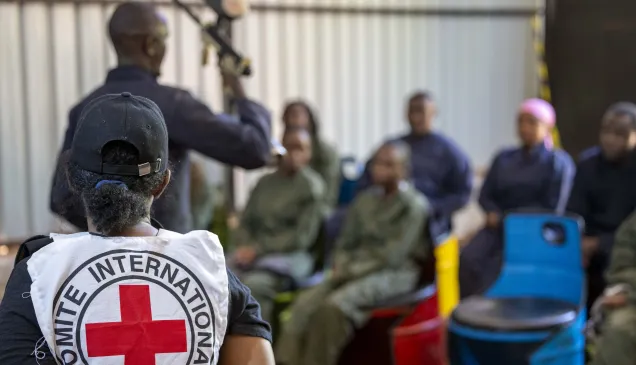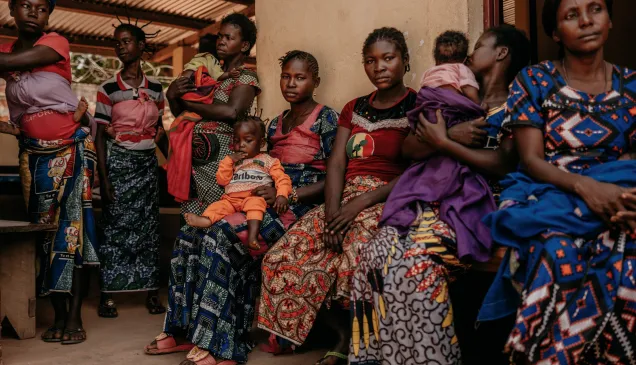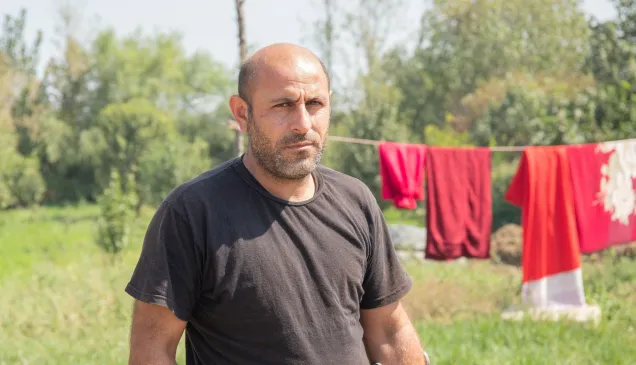Democratic Republic of the Congo: the women of Kasai and their quest for peace
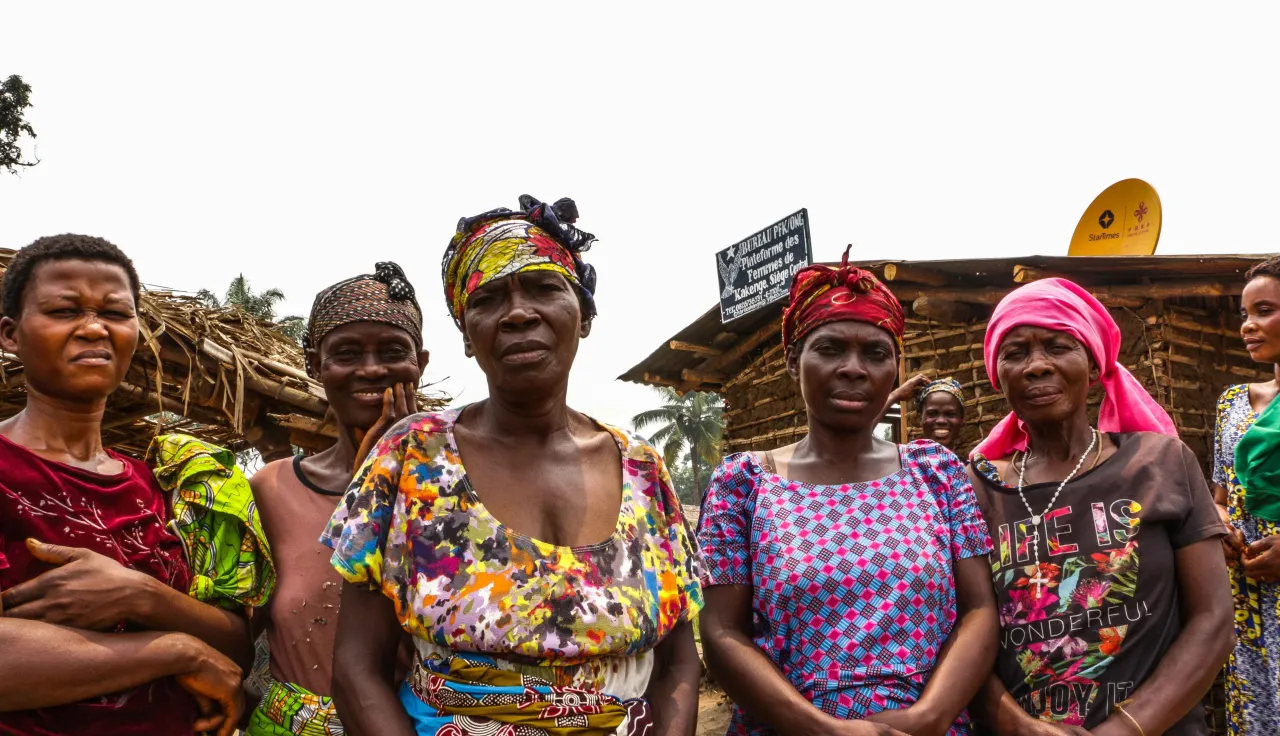
In the province of Kasai, the ethnic violence that once ignited the Kakenge region is over, thanks to an initiative led by a group of women. But the path to peace was long, difficult and fraught with danger.
In Kakenge, in eastern Kasai, men, women and children gather to sing and dance. Some distance away, under the palm trees, the village leaders are watching, pleased. Families are celebrating the return of peace, but the scene belies the fact that, just a few months ago, some of these families were trying to kill each other.
Peace at any price
Charlie Shanga feels proud. At the age of 33, she has achieved the unachievable. While the men were fighting, she did everything she could to bring about peace. In 2018, the mother-of-two was, herself, the victim of violent clashes over land disputes that tore two ethnic groups apart. Married to a man from the other ethnic group, Charlie was terrified – terrified of returning home to find her husband dead.
"I thought we were safe because we lived in my community," she said, "but that wasn't the case."
Escape was their only option. "We spent months living in the bush, with my four-month-old daughter in my arms. We left home with nothing, but we survived by eating leaves and we slept on the bare ground wherever we could," she recollected. When they finally returned to their village, it was unrecognizable. "The mothers of Kakenge, we just couldn't live like this any more; feeling sick to the stomach, watching our children and husbands hacked to death by machetes."
But the question was, how to bring about change? Charlie decided to launch a platform for the women of Kakenge, which brought together anyone and everyone who wanted the violence to end, irrespective of where they came from. Their shared suffering meant they were able to overcome their differences and unite around a common goal: to live peacefully in the town, which was now deserted and devoid of basic services.
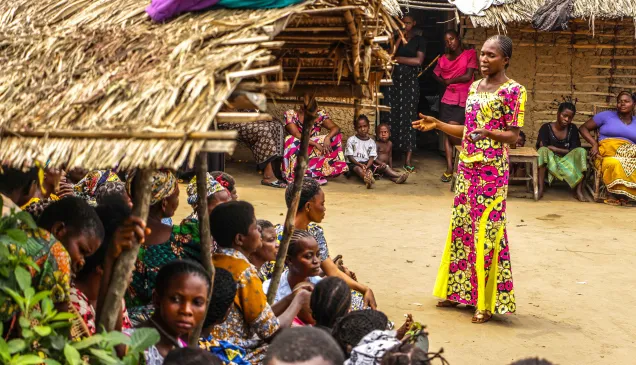
The women of Kakenge hang on Charlie’s every word. She has gained their trust with her achievements.
When dancing goes hand in hand with peace
The quest for peace started by organizing traditional singing, folk dances and street theatre. This allowed people from different ethnic groups to mix and start talking. The violence continued to escalate though, and the women saw that dancing alone was not going to work, so they changed tack and redoubled their efforts. They decided to meet with the community leaders at the heart of the conflict, dubbed the "warlords" by the women. "We were scared, very scared, but we all went together," recalled Charlie. The women got permission to continue to meet. They then set about selling firewood and spring water to raise enough money to organize the platform's first march in November 2018.
The march saw some 10,000 women from different ethnic groups take to the streets to call for peace and unity. They met village leaders and the event ended with a shared meal. This was the first time in years that Kakenge's residents had come together to eat as one.
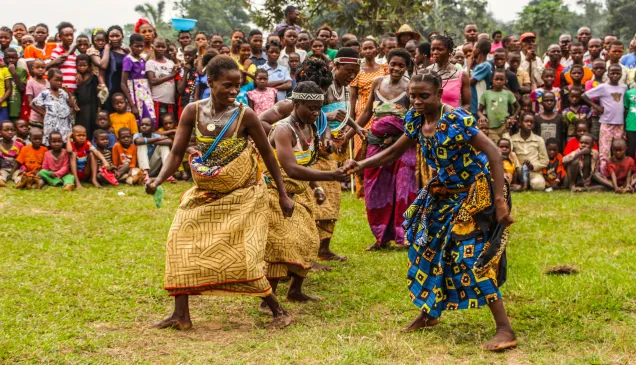
Dancing and singing in local languages are a useful conduit for sharing messages of peace and reconciliation.
The women's best allies are men
Despite all these efforts, the fighting still did not stop, so the women decided to change tack again. And this time, the message would be delivered closer to home. "We all had discussions with our husbands to remind them of the value of peace over war," explained Charlie.
The women were certain that the peace process had to include men. Balex, a 44-year-old man, joined the platform with seven of his neighbours. "I truly believe in what the platform is trying to do. The women have dared to say 'no' to war." The father-of-six now helps with the platform's projects, particularly those related to agriculture and small businesses.
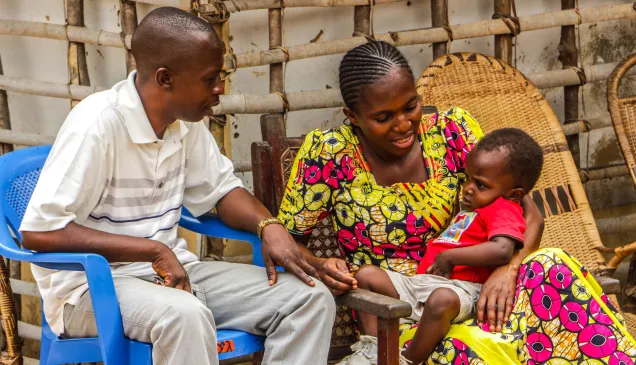
Charlie’s husband understands the need for peace.
Peace at last
Radiant in her colourful dress and with the sound of drums beating behind her, Charlie joins her loved ones at the celebration. Kakenge has been brought back to life: shops have reopened and children are going back to school. Charlie feels happy with this version of her small town and Kakenge has rediscovered its balance. "Thanks to the women, we are now enjoying peace," said one of the village leaders, referring to the women from the PFK platform. "You could say that a god has descended to reunite us all," said the leader of another group.
Conflict belongs in the past. We have to forget and move forwards," reflected Charlie.
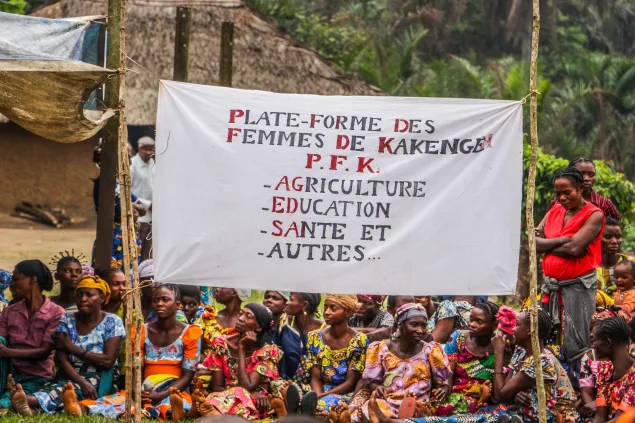
In August 2019, once the violence was over and people returned to the region, the ICRC distributed cash to more than 9,900 households in Kakenge to help pay for food, schooling, health care and the rebuilding of houses. The ICRC worked with the women's platform during the cash distribution to raise awareness about the ICRC's activities, as well as those of the Red Cross of the Democratic Republic of the Congo.

